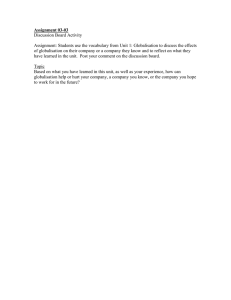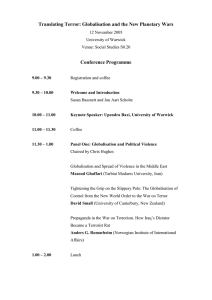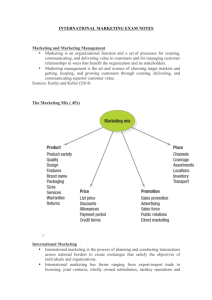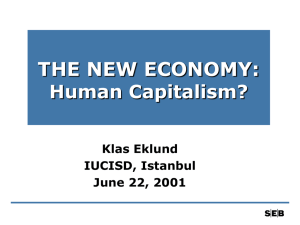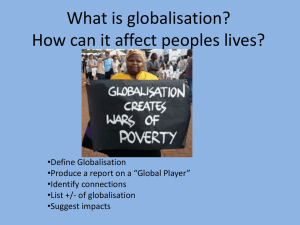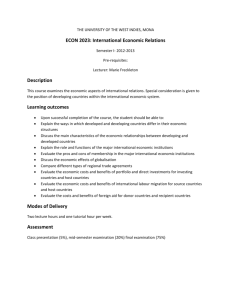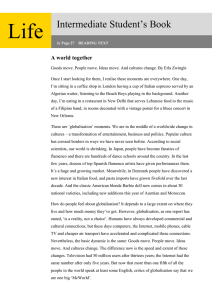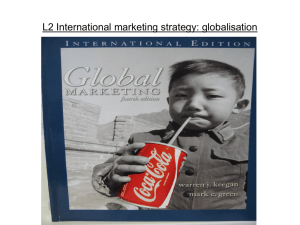CCN2126 Introduction to International Business
advertisement
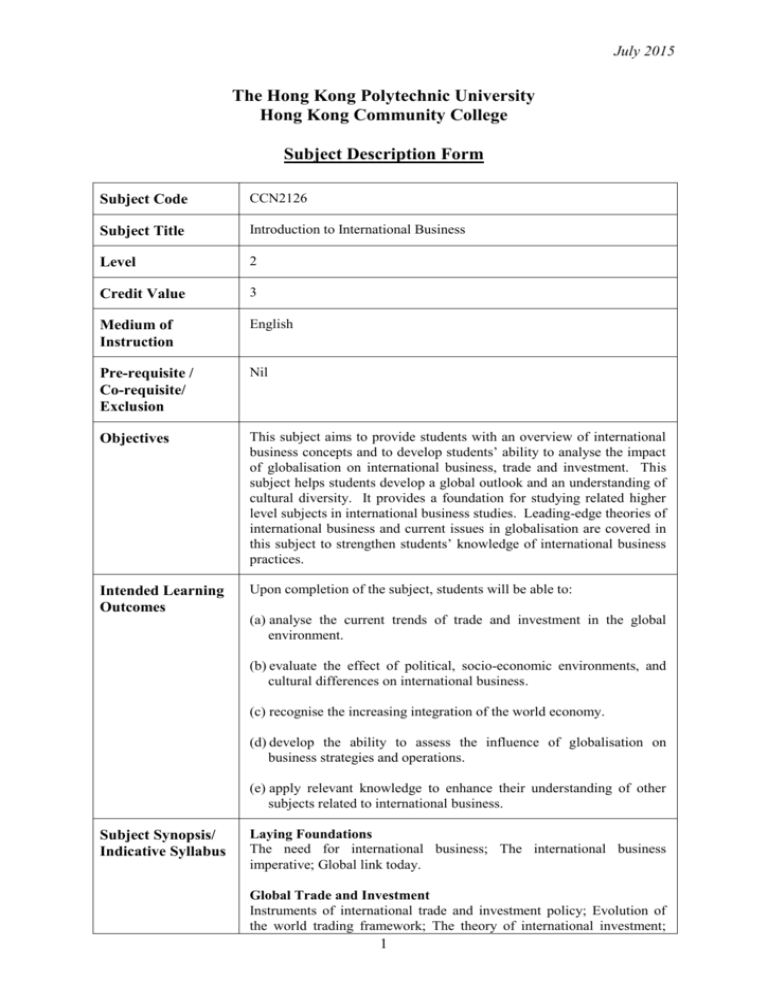
July 2015 The Hong Kong Polytechnic University Hong Kong Community College Subject Description Form Subject Code CCN2126 Subject Title Introduction to International Business Level 2 Credit Value 3 Medium of Instruction English Pre-requisite / Co-requisite/ Exclusion Nil Objectives This subject aims to provide students with an overview of international business concepts and to develop students’ ability to analyse the impact of globalisation on international business, trade and investment. This subject helps students develop a global outlook and an understanding of cultural diversity. It provides a foundation for studying related higher level subjects in international business studies. Leading-edge theories of international business and current issues in globalisation are covered in this subject to strengthen students’ knowledge of international business practices. Intended Learning Outcomes Upon completion of the subject, students will be able to: (a) analyse the current trends of trade and investment in the global environment. (b) evaluate the effect of political, socio-economic environments, and cultural differences on international business. (c) recognise the increasing integration of the world economy. (d) develop the ability to assess the influence of globalisation on business strategies and operations. (e) apply relevant knowledge to enhance their understanding of other subjects related to international business. Subject Synopsis/ Indicative Syllabus Laying Foundations The need for international business; The international business imperative; Global link today. Global Trade and Investment Instruments of international trade and investment policy; Evolution of the world trading framework; The theory of international investment; 1 July 2015 Theoretical foundations surrounding national competitive advantage. Globalisation Drivers The elements of culture; Cultural analysis; Similarities and differences between cultures; Politics and law; Political and legal environment. Economic Integration Levels of economic integration; Arguments surrounding economic integration; Regional economic groupings and agreements in different regions. Effects of Globalisation on International Business Strategies Strategic planning, implementation, and control; Recognising the need for international research; Global entry and expansion; Motivations to go abroad. International Business and Its Influence on Operations Investigate strategic management issues of global marketing and international HRM; Standardisation versus adaptation; Organisation structures of international business; Selection criteria for overseas assignments; Compensation. Teaching/Learning Methodology Lectures will focus on the introduction and explanation of basic international business concepts, with specific reference to current globalisation issues wherever appropriate. Tutorials will provide students with the opportunity to deepen their understanding of the concepts taught in lectures and to apply the theories to the analysis of real-life international business issues. Activities in the tutorials will normally include group discussions and presentations of case studies, questions and problems sets. Assessment Methods in Alignment with Intended Learning Outcomes A variety of assessment tools will be used to develop and assess students’ achievement of the subject intended learning outcomes. Specific assessment methods/tasks % weighting Intended subject learning outcomes to be assessed a b c d e Continuous Assessment* 50 Test 15 Individual Assignment 10 Group Project 20 Tutorial Exercises & Activities 5 Final Examination 50 Total 100 *Continuous assessment items and/or weighting may be adjusted by the subject 2 July 2015 team subject to the approval of the College Programme Committee. To pass this subject, students are required to obtain Grade D or above in both the Continuous Assessment and Final Examination. Student Study Effort Expected Class contact Hours Lecture 26 Tutorial 13 Other student study effort Reading List and References Self-study 52 Continuous Assessment 39 Total student study effort 130 Recommended Textbook Cavusgil, S. T., Ronkainen, Knight, G., & Riesenberger, J. R. (2014). International Business: The New Realities. (3rd ed.), Prentice Hall. References Ball, D., Geringer, M., Minor, M. S., & McNett, J. M. (2010). International business: The challenge of global competition. (13th ed.), McGraw-Hill. Griffin, R. W., & Purstay, M. (2013). International business. (7th ed.), Prentice Hall. Hill, C. W. L. (2013). International business. (9th ed.), McGraw-Hill. Peng, M. (2014). Global Business. (3rd ed.), Cengage Learning. Wild, J. J., & Wild, K. L. (2014). International business. (7th ed.), Prentice Hall. 3
